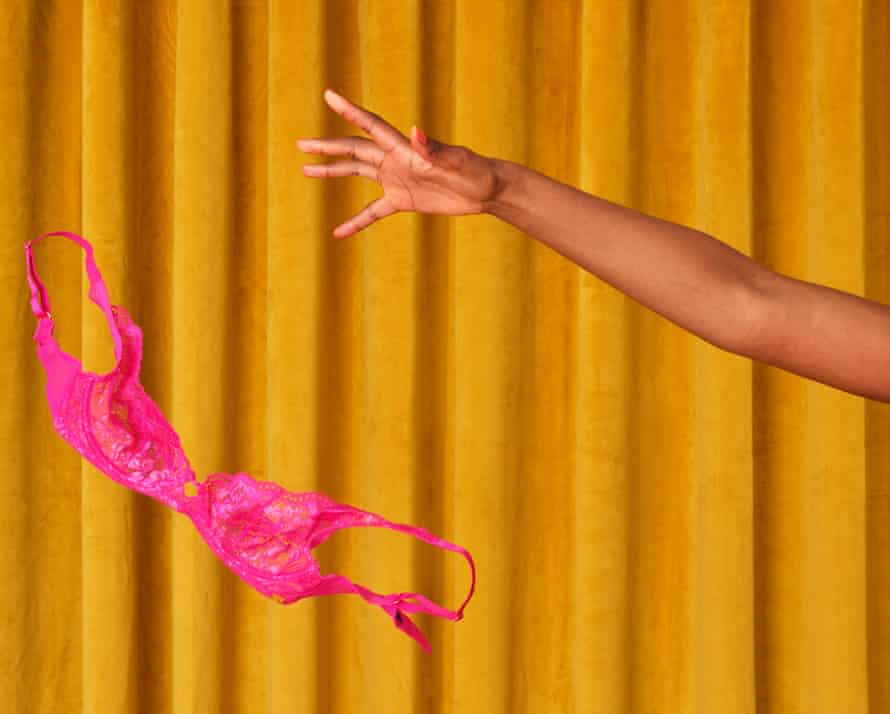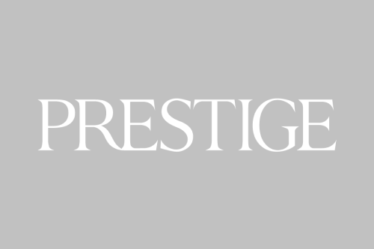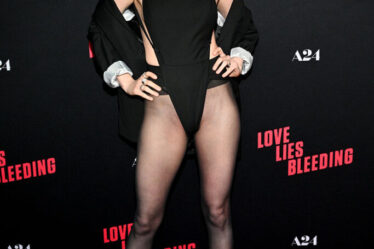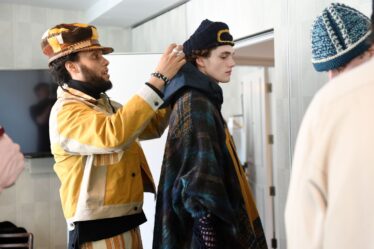
It’s spring 2022. Running late for the school pickup is stressful at the best of times, let alone when you’re not wearing a bra. I knew I could make it if I ran, but while I’m petite, I wear a D cup, so jogging along a main road mid-afternoon involved pinning my forearms to my chest like a T rex as if this was somehow less ridiculous than clutching my boobs. Everyone is looking at me, I thought. Everyone is looking at me and they know I’m not wearing a bra.
Of course nobody noticed or cared whether I was wearing one, yet I continued to walk with my arms folded against my chest. Lockdown may have long lifted but my lockdown habits – which began with forgoing smart clothes, then tights and eventually, inevitably, underwired bras – persist.
Back in spring 2020, with nowhere to go, I welcomed it. I can’t think of a single bra-wearing person who isn’t familiar with the stab of an underwire gone rogue, having slipped the confines of its fabric. Or that urgent exhale that comes from unhooking a bra at the end of the day. Pre-pandemic, on rare evenings when I would forget to remove my bra, I’d be reminded of its presence via a throbbing ache on my ribs, my body’s morse code alert that the bra had overstayed its welcome. But in the past few years, the closest I got to an actual bra was a sports one. Is it any wonder that sales of them have risen so steeply that they’ve been added to the ONS’s measure of inflation? We may have returned to work, but the idea of returning to our underwireds feels like a step too far.
For proof – if proof were needed – halfway through the pandemic, in October 2020, lingerie retailer Bravissimo reported a 30% drop in revenue. Data from global market research group NPD also confirmed that sales in women’s apparel in general were down in 2020 from April through to June, with bra sales alone seeing a 16% decrease. “Fashion doesn’t exist in a bubble; it looks at how people are living, what they’re consuming,” says Lauretta Roberts, co-founder of fashion news site theindustry.fashion. “People’s lifestyles change and fashion has to respond to that.”
Of course, bras remain sacred to some women. Take Annette Whymark, 58, who works in film: she tells me she has never gone braless. “I’m not someone who could ever wear a top without one; I would feel too exposed.” But there are other women like me. Ashleigh Cunningham, 26, an art department assistant, size 32C, stopped wearing a bra over lockdown simply because she could: “I didn’t feel the need to be what society considers as presentable.” Like mine, Ashleigh’s shifting habits have bedded in: “Once everyone started going back to work again, I didn’t want to wear a bra. So I wore little crop tops instead of a full underwire. I just find it more comfortable.”
Some companies on the high street, such as M&S and Cos, have responded by introducing bras that are neither traditional or sporty, just comfy. They tend to sit alongside pyjamas and loungewear, and come in unusual fabrics such as cashmere mix. They’re also sturdy enough to be worn alone (should you feel able). Other companies removed traditional bras altogether. Underwear brand Parade, for example, doesn’t feature a single underwired bra. The firm’s founder, Cami Téllez, started the company in response to shifting perceptions. “We know there are people who are still wearing underwire because they feel it has more support, or provides structure to a particular outfit, or because they feel their best wearing one,” she tells me. “So, it’s less about the death of the underwire, and more about offering an alternative.”
Now, at 38, I’ve found my happy medium in bralettes – bras in spirit, just without the wires and the padding. I had always seen them as a young girl’s garment, made of flimsy fabric and lacking any supporting structure. Times have changed though, and I was pleasantly surprised to see thicker fabrics and adequate structuring.
The ones I ordered online come in small, medium or large – no cup sizes – distancing them even further from “proper” underwear. What arrived was black velour, lace trim, plunging v-neck. A thick strap around the back and spaghetti straps on the shoulders, with more support than I expected.
My daughter walked in when I was trying it on. As a teenager, she interpreted it as outerwear, and told me a member of the band Blackpink has the same “top”. I replied that this was my underwear. “Oh,” she said. “Well, it’s pretty and makes a nice top.” Before I launched into a speech about appropriate clothing, I remembered that underwear as outerwear is not an unfamiliar concept to me; that when I was her age, in the 1990s, a black bra beneath a white school shirt, sans vest, was quite the craze.
In primary school, aged nine, I remember the moment girls in my class got their first “training bra”. I was so envious – the idea that they got to wear a proto-bra to train their bodies for the real thing felt deeply solemn. And who can forget their first real bra, however embarrassing the experience? A couple of years later, my mum measured me by sight – 30B – and left a dark red bra with a thin lace trim on my bed.
Swapping the bobbling cotton of my crop top, which went on over my head like a vest, for the silky fabric and hook-and-eye fastening of my first bra felt like crossing a threshold into womanhood. With it on, I stood a little straighter, finally experiencing what it was like to fit in. That was until PE class later that week, when I undid my shirt and was met with stares, all the other girls whispering and pointing in their brilliant white bras.
I’ve rarely taken my bra off in the 25 years since. As a teenager, I even remember sleeping in mine for fear of having “saggy tits” – like Amy in Little Women sleeping with a peg on her nose to coax it into a more attractive shape.
Then I got pregnant, aged 24, and as my body stretched and swelled, the idea of not wearing a bra was unthinkable. Once the baby was born and I was breastfeeding, I leaned towards unwired maternity bras so as not to damage my milk ducts. I was grateful for nursing bras, and their much-needed support, click clasps and attempt (albeit futile) to prevent a wet patch spreading across every top I wore, but I hated their sexless efficiency. When the time came to swap feeding bras for regular ones, I couldn’t wait to feel more myself again, but post-nursing deflation was not something I was taught about in antenatal class. The fat stores in your breasts are depleted, the health visitor told me. They may or may not return to pre-pregnancy shape and size. Try buying a smaller size. Just as my body stretched, sagged, shrunk, so too did my bras. I now suspect this planted a seed.
For Téllez, it’s about choice: “I know some people who never wear a bra and I know others who wear one to sleep. It all comes down to how comfortable you are and how good you feel – and it may be a different garment every day. During the pandemic, we saw a swing towards the mass casualisation of apparel, based on comfort and value. That’s not going to change, but it will adapt as the world opens up again.”
Working from home, as I do most days, I still dress in a uniform of sports bra and leggings. And I would sooner throw on a fitted hoodie and a nice pair of trainers for the school run than change back into an underwire.
Recently, though, I wore a fitted dress with a high neck to a book launch. I knew I’d be in a room almost entirely filled with people I didn’t know, and I wanted to feel confident, or at least comfortable. On that occasion, only an underwired bra would do. And as the weather changes, and our shoulders and collarbones emerge from hibernation, I know (deep down) that the thick straps of sports bras simply won’t cut it with a strappy dress or vest top. But until then, I’ll enjoy my freedom.



